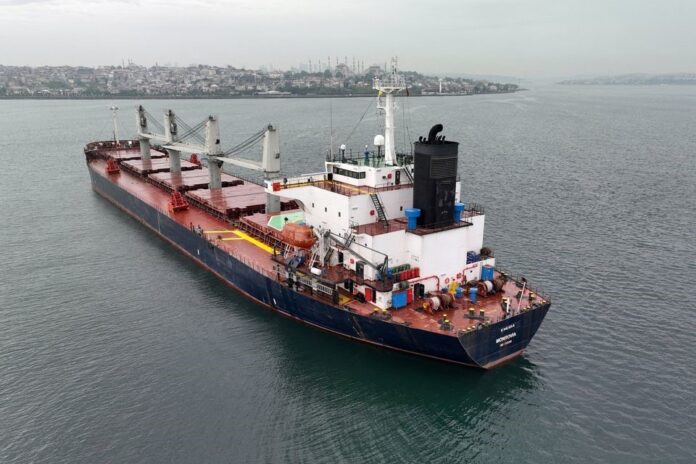Global wheat prices have experienced a significant surge following Russia’s announcement that it would treat ships heading to Ukrainian ports as potential military targets. The move came after Moscow withdrew from a grain deal that previously guaranteed safe passage for grain shipments through the Black Sea. In response, a White House spokesperson accused Russia of planning to blame Ukraine for attacks on civilian ships.
President Vladimir Putin stated that Russia would return to the grain agreement if specific demands were met, including reconnecting Russia’s agricultural bank to a global payment system. However, the situation escalated with Russian air strikes hitting Ukrainian cities. Notably, an air strike on Mykolaiv wounded 18 people, and other attacks were reported on the port of Odesa. Additionally, a drone strike in Russian-controlled Crimea resulted in the death of a teenage girl.
Ukrainian President Volodymyr Zelensky accused Russia of deliberately targeting grain export infrastructure, putting vulnerable countries at risk. In response, Kyiv urged other countries in the Black Sea region to intervene and ensure the safe passage of cargo ships.
As a consequence of these developments, wheat prices on the European stock exchange and US wheat futures experienced substantial spikes, reaching their highest daily rise since Russia’s invasion of Ukraine. The Ukrainian Agriculture Minister reported that the strikes had caused significant damage to grain export infrastructure, destroying 60,000 metric tonnes of grain.
Analysts expressed concerns that the threat of escalation could disrupt waterborne grain shipments in the Black Sea, affecting both Russian and Ukrainian shipments and causing a situation reminiscent of the conflict’s early stages.
In light of the situation, President Putin accused the West of using the grain deal as “political blackmail.” Additionally, Moscow accused Ukraine of using the Black Sea grain corridor for “combat purposes” following an attack on its sea bridge to Crimea. The events have created tension in the Black Sea region and have major implications for global grain markets.

















